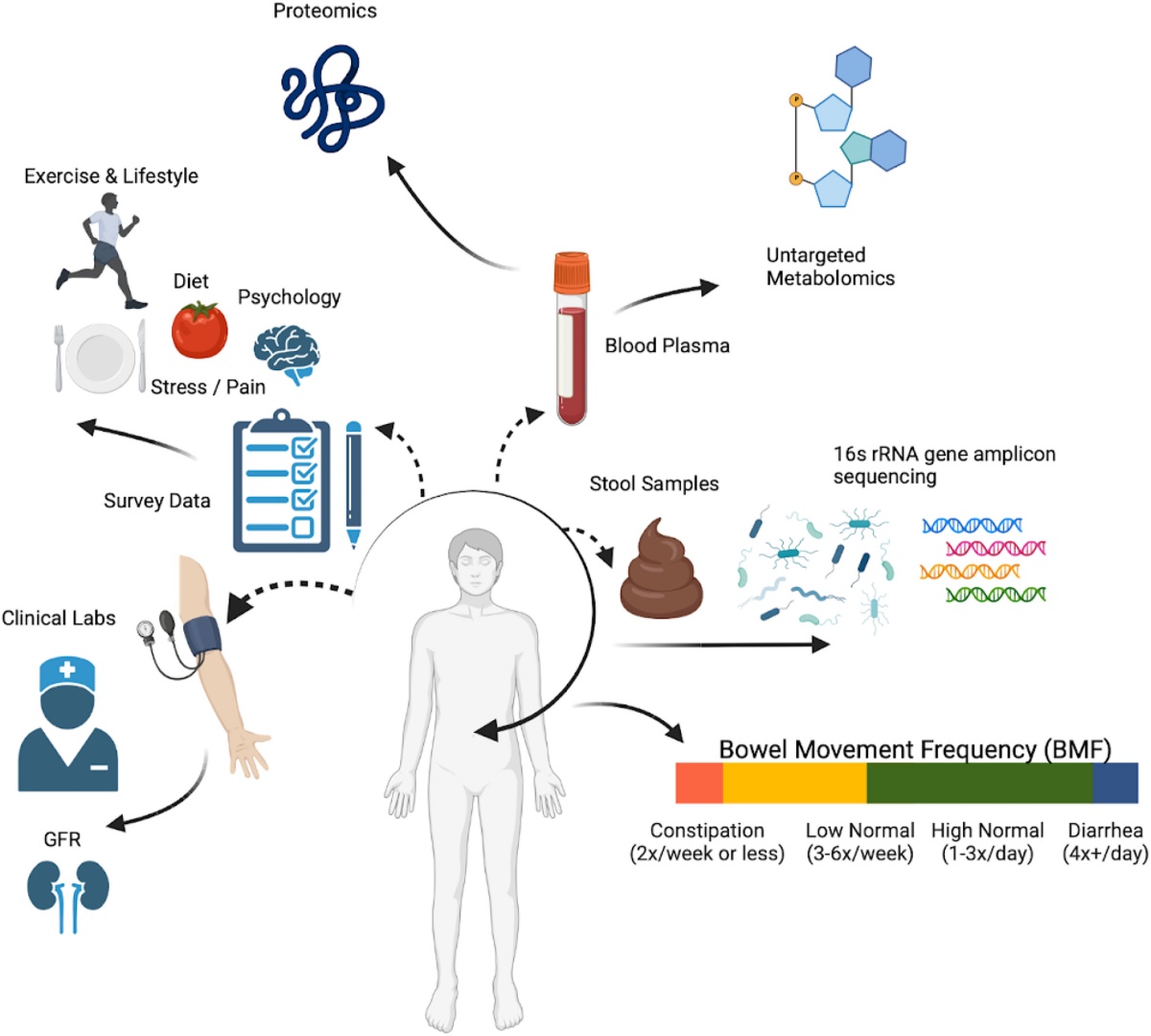When it comes to health, it’s easy to overlook your bathroom habits. However, a new study published in Cell Reports Medicine reveals that your poop schedule (how often, how easily, and how consistently you go) can be a window into your overall well-being. While it’s not the most glamorous topic, paying attention to your bowel movements can help identify issues related to digestion, gut health, and even chronic diseases.
Researchers from the Institute for Systems Biology (ISB) in Seattle, US, analysed data from over 3,600 participants, looking at their bowel movement patterns and overall health markers.

The self-reported bowel movement frequencies of study participants were categorised into four groups:
- Constipation: One or two bowel movements per week
- Low-normal: Three to six per week
- High-normal: One to three per day
- Diarrhoea: Four or more per day
STUDY FINDINGS:
Poop Frequency Varies: While some people go multiple times a day, others might only go a few times a week. Both can be normal, but extremes at either end (constipation or diarrhoea) may signal health issues.
Irregular Patterns Matter: Irregular bowel habits, especially when paired with symptoms like pain or bloating, can be early warning signs of conditions such as irritable bowel syndrome (IBS), inflammatory bowel disease (IBD), or even certain metabolic disorders.
Gut Microbiome Connection: Your poop schedule is closely tied to the health of your gut microbiome, the collection of bacteria and other microorganisms in your digestive system. A healthy microbiome promotes digestion, regulates bowel movements, and supports immunity.

Chronic Illness Links: Abnormal bowel patterns were linked to an increased risk of conditions such as type 2 diabetes, obesity, and heart disease.
Tips To Maintain A Healthy Poop Schedule
For most people, going anywhere from one-two times a day is considered normal. What matters most is consistency and the absence of discomfort.
1. Eat a Fibre-Rich Diet
Fibre is crucial for maintaining regular bowel movements. Include plenty of fruits, vegetables, whole grains, and legumes in your diet. Soluble fibre (found in oats and beans) softens stool, while insoluble fibre (in foods like whole wheat and nuts) helps bulk it up and move it along.
2. Stay Hydrated
Water is essential for digestion and helps prevent constipation. Aim for at least 8 glasses a day, and adjust based on your activity level and climate.
3. Move Your Body
Physical activity stimulates the muscles in your digestive tract, promoting regular bowel movements. Even moderate exercise like walking or yoga can help.
4. Pay Attention To Your Gut Microbiome
Foods rich in probiotics, such as yoghurt, and fermented vegetables (like kimchi or sauerkraut), support a healthy microbiome. Prebiotic foods like garlic, onions and bananas feed the good bacteria in your gut.
5. Establish A Routine
Your body thrives on regularity. Try to go to the bathroom at the same time every day, ideally after meals, when your digestive system is naturally more active.
6. Limit Processed Foods
Highly processed foods, especially those high in sugar and fat, can disrupt your gut health and lead to irregular bowel movements.
7. Don’t Ignore The Urge
Holding in a bowel movement can lead to constipation and other issues over time. Listen to your body and go when you need to.
When To See A Doctor
While occasional changes in bowel habits are normal, Dr Narendra Singhla from CK Birla Hospital in Delhi recommends consulting a medical expert if you notice:
- Persistent diarrhoea or constipation lasting more than a few weeks.
- Blood in your stool.
- Severe abdominal pain or cramping.
- Unexplained weight loss.
"These could be signs of underlying health conditions that need medical attention," says Dr Singhla.
As the study highlights, regularity and comfort in bowel movements are essential for overall well-being. By adopting healthy habits like eating fibre-dense foods, staying hydrated, and maintaining an active lifestyle, you can support your digestive system and improve your quality of life. The key to good health may start in the gut—so don’t ignore what your body is telling you.
Sources:
https://www.cell.com/cell-reports-medicine/fulltext/S2666-3791(24)00360-4
https://pmc.ncbi.nlm.nih.gov/articles/PMC3544045/
https://pubmed.ncbi.nlm.nih.gov/23320049/
(Disclaimer: The information provided in this health article is for general informational purposes only and is not intended as medical advice. It is not a substitute for professional healthcare consultation, diagnosis, or treatment. Always seek the advice of your physician or other qualified health provider with any questions you may have regarding a medical condition.)



